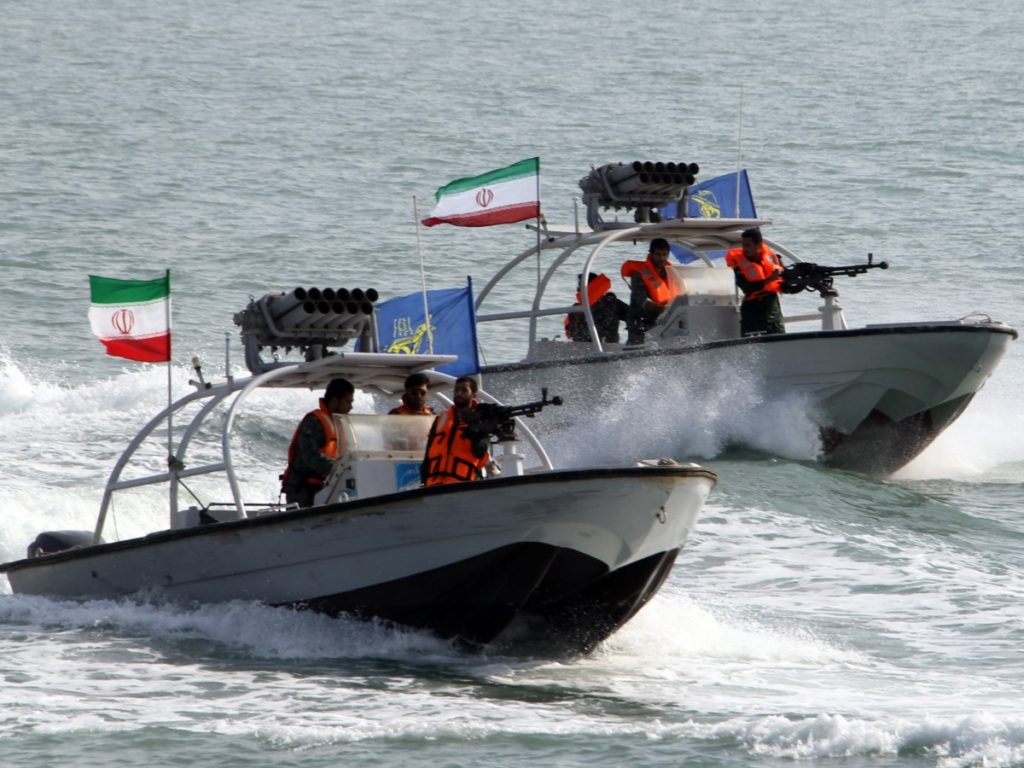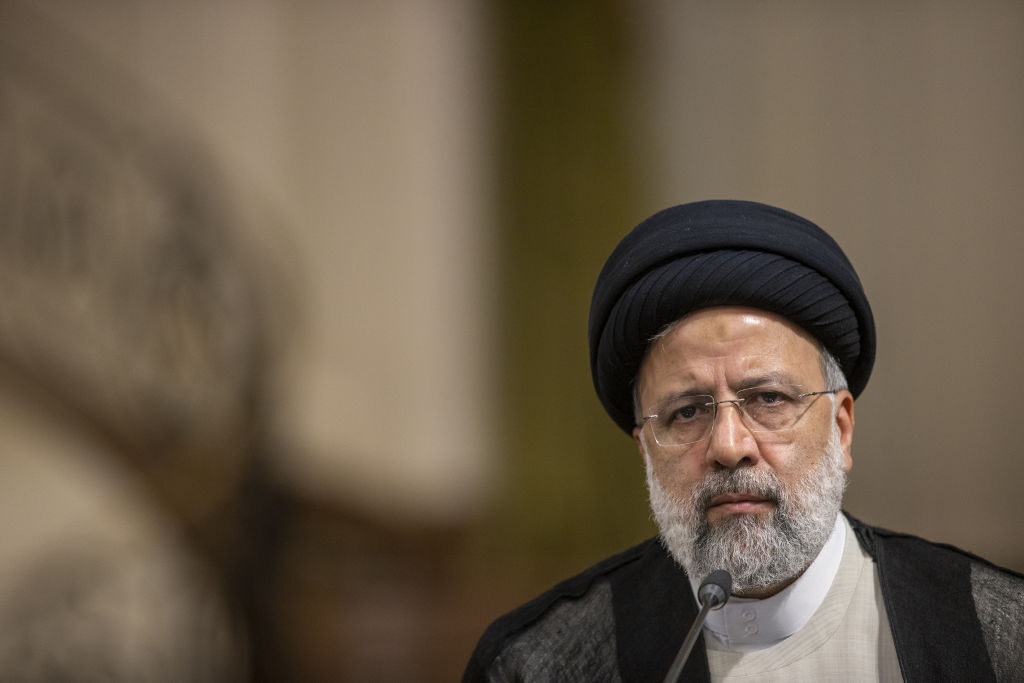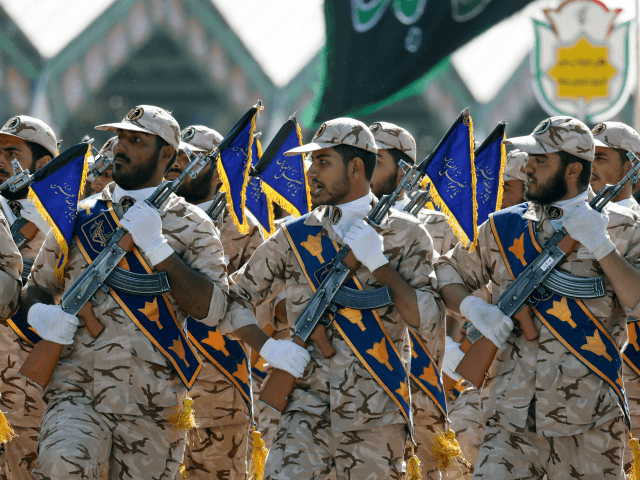Radical Islamist President of Iran Ebrahim Raisi declared his country “invincible” in a threatening military rant on Thursday preceded by his top diplomat claiming the rogue regime was still “closely studying” a proposal to revive the doomed 2015 nuclear energy deal with Europe and the United States.
Raisi proclaimed that America had suffered a “humiliating defeated [sic],” according to the Iranian state-run Fars News Agency, in withdrawing from the Iran Nuclear Deal and that it was negotiating now because it was aware that Iran was “invincible and powerful.”
Raisi made the remarks during an event Fars identified as the “AhlulBayt World Assembly” in the nation’s capital.
Iran had entered an agreement formally known as the Joint Comprehensive Plan of Action (JCPOA) with the European Union and a group of countries known as the P5+1 (China, France, Germany, Russia, the United Kingdom, and the United States) in 2015 that significantly reduced sanctions on the repressive state in exchange for alleged assurances that it would not pursue nuclear development.
After years of evidence that Iran was not abiding by the deal, former President Donald Trump withdrew from the JCPOA and reinstated previous sanctions, calling the agreement “decaying and rotten.” Trump also designated the Islamic Revolutionary Guard Corps (IRGC), a formal wing of the Iranian armed forces, a terrorist organization in response to its illicit activities throughout the Middle East and in as far-flung locations as Argentina.
Extensively documented evidence suggests that the Iranian regime used the money from sanctions relief and the JCPOA generally to fund international terrorist operations such as Hezbollah and the Yemeni Houthi movement, a Shiite terrorist organization whose motto is “death to America, death to Israel, curse the Jews, victory to Islam.”
Leftist President Joe Biden, who served as vice president while the JCPOA was signed, is reportedly engaging in negotiations to return America to a form of that agreement. Iranian officials have confirmed on multiple occasions that the remaining party countries and America have traded drafts of a new deal with Tehran.
Foreign Minister Hossein Amir-Abdollahian claimed on Wednesday that Iranian officials are still “studying” the agreement.
Raisi’s belligerent language appears to undermine his diplomat’s claims that Tehran is seeking a more robust agreement that ensures long-lasting peace.
“The Islamic Republic of Iran is now stronger than ever and our enemies are weaker than ever before,” Raisi bellowed on Thursday, according to Fars.
Iran, he reportedly continued, is “so strong that not only the region but the whole world is well aware of the Islamic Republic’s righteousness and high status.”

Iranian Revolutionary Guards drive their new (special) speedboats during a ceremony to commemorate the 24th anniversary of the downing of Iran Air flight 655 by the U.S. navy, at the port of Bandar Abbas on July 2, 2012. (ATTA KENARE/AFP/GettyImages)
“That is why the White House admits that the ‘maximum pressure’ on the Islamic Republic has faced a humiliating defeated [sic] and failed to deliver any results,” his speech reportedly continued. “What has made us an influential power in the region and the world are efficient, motivated and revolutionary forces and the defense achievements made by our scientists.”
The mention of “scientists” appears to be a reference to both nuclear weapons development – which Iran falsely claims its “supreme leader,” Ayatollah Ali Khamenei, banned via fatwa – and to reports that Iran is now selling armed drones to Russia for use in its invasion of Ukraine.
Raisi did not specify, nor much less did he refer to reports that Iran’s drones are malfunctioning and causing Russia significant technical problems.
Amir-Abdollahian, the foreign minister, used much more tempered language regarding relations with the West generally on Wednesday during a press conference with his Russian counterpart, Sergei Lavrov.

Iranian President Ebrahim Raisi: “The Islamic Republic of Iran is now stronger than ever and our enemies are weaker than ever before.” (Ali Balikci/Anadolu Agency via Getty Images)
“We have received the American side’s last text, and my colleagues are closely studying the response with the required [level of] rigor and speed,” Amir-Abdollahian said, claiming that government authorities had not completed their full review of the text, but that Iran needed “stronger guarantees” anyway.
While the official did not specify at the time what those guarantees would look like, others in the Iranian government have invested heavily in browbeating the International Atomic Energy Agency (IAEA), the United Nations’ official nuclear energy watchdog, out of demanding oversight into Iran’s nuclear activities to ensure the country is not manufacturing weapons.
“Amir-Abdollahian said Iran is serious about the conclusion of a lasting agreement, adding that an agreement would not be out of reach if the US acts ‘realistically’ and the present text is reinforced,” PressTV, another government propaganda outlet, relayed.
“Our purpose is the conclusion of a good, strong, and lasting agreement,” the site quoted the foreign minister as saying.
Amir-Abdollahian made similar remarks last weekend.
“The response of the American side is being studied carefully,” he offered vaguely.
Similarly, Raisi undermined the diplomatic tone of his foreign minister on Monday, declaring that nuclear energy had been “indigenized” in Iran and “cannot be taken from us in any way,” leaving unclear what the purpose of nuclear agreement talks would be for the non-Iran parties involved. For Iran, he insisted, “negotiations are for the sake of removing the sanctions” imposed under Trump.
“Our emphasis in these negotiations is on the removal of sanction,” he said.
Amir-Abdollahian had said last week that negotiations for a new agreement “have entered the closing stages.”
Follow Frances Martel on Facebook and Twitter.

COMMENTS
Please let us know if you're having issues with commenting.